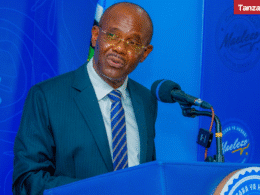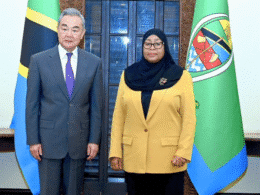Tanzania’s national airline and the former sector leader, Air Tanzania Company Limited (ATCL) resumed its domestic flights at the end of last week after having its flight operations suspended and its operations certificate revoked by the Tanzania aviation authorities on December 8 of last year.
The airline was grounded after reports from the Tanzania Civil Aviation Authority (TCAA) said that it was not air-worthy due to numerous documentation discrepancies as well as operational failures within the company’s management.
This ban from the TCAA followed earlier threats from the International Civil Aviation Organization (ICAO) to rate ATCL aircrafts as not airworthy.
Following these reports, the International Air Transport Association (IATA) requested that the airlines flight certificate be indefinitely revoked until the company had resolved its operational issues.
After satisfying all of the requirements from the TCAA, the ATCL was officially allowed to resume its flights on December 30 of last year, however, due to financial difficulties, the airline was unable to operate its aircraft at that time.
Instead, the airline appealed to the government for assistance and, since then, flights for the airline have resumed after the government released Tsh 2 billion in order to bail the carrier out of its financial slump.
According to a report by the East African Business Week, the deputy director of air transport in the infrastructure development ministry, Kirenga Ndemino, announced the government’s plan to release the funds earlier last week.
“The government has agreed to give ATCL an additional TShs2 billion that the company had asked for,” Ndemino said.
According to recent reports, the Chief Executive Officer of ATCL, Mr. David Mattaka, is optimistic about the future of the airline, however, in order to ensure this future, the airline will need to resolve some of its current issues regarding recapitalization and human resources.
In order to address these issues, Mr. Mattaka suggested that the government replace the current management if doing so would help to better stabilize the national carrier.
“It’s a fact that the ATCL needs recapitalization as well as bring in new skills,” said Mr. Mattaka, “These should go together because no matter how one is good, the environment at the ATCL does not permit for much creativity or innovation […] However, if the government thinks the management of ATCL is a problem, then we are ready to be removed if by doing so means that the situation will improve.”
Currently, the heaviest competition that the airline faces is from the Kenya national air carrier, Kenya Airways, as well as its budding subsidiary airline, Precision Air, which operates out of the Julius Nyerere International Airport in Dar es Salaam.










